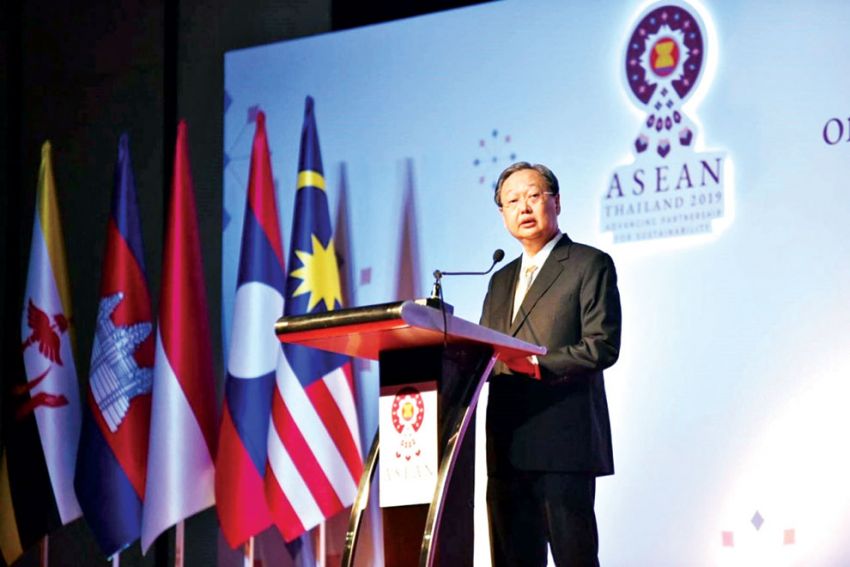
Minister of Commerce Sontirat Sontijirawong spoke on Monday January 14 at the ‘Special Session on the 4th Industrial Revolution (4IR)’ seminar in Bangkok, organised by the Department of Trade Negotiations.
Thailand is the ASEAN chair this year and is aiming to reach for a cohesive regional industrial 4.0 development plan and to implement guidelines on non-tariff measures across the region.
Thailand’s aim is to drive the region forward by laying emphasis on the development of industry 4.0 under the main theme of Advancing Partnership for Sustainability, said Minister of Commerce Sontirat Sontijirawong, who will chair the meeting of ASEAN’s economic ministers in April.
Mr Sontirat said during his keynote speech that “Thailand has carefully chosen our priority economic deliverables for the ASEAN chairmanship, recognising the importance of the 4IR, this topic features prominently in our priority economic deliverables with five out of 12 deliverables focusing on this issue alone.”
The first of the 4IR deliverables is to draw up an ASEAN Declaration on Industrial Transformation to Industry 4.0.
Digital Integration Framework Action Plan
Next is the development of an Asean Digital Integration Framework Action Plan (DIFAP). The Asean DIFAP aims to develop a sound plan for ASEAN to advance an agenda of digital integration over the next 12-18 months.
The action plan will tackle the following issues:
- Facilitating seamless trade
- Protecting data while supporting digital trade
- Enabling seamless digital payments
- Developing a digital workforce
- Fostering entrepreneurship
ASEAN Innovation roadmap
The third deliverable is the development of an ASEAN innovation road map, to be called Partnering for Innovative Community. It will lay out plans to promote the adoption of innovation as a tool in driving ASEAN forward from now to 2025.
Developing a skilled digital workforce
Fourth is to release guidelines on development of skilled labour to address the challenges of 4IR.
Digitising smaller ASEAN businesses
Finally, Thailand will develop policy guidelines to promote ASEAN-based microenterprises and to push for their digitisation. This is to enable smaller businesses to penetrate the wider international market through the use of digital technology.


















